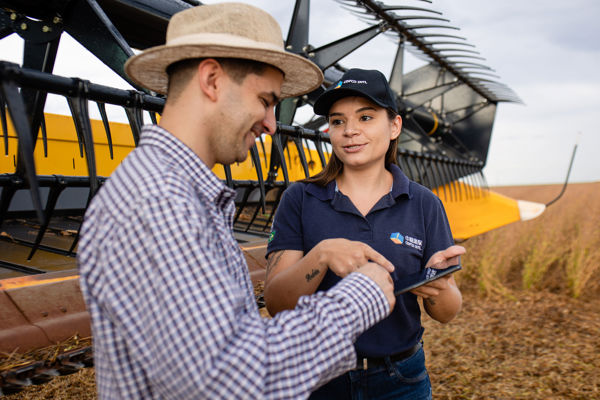
Brazilian sugar fields abuzz with successful bee protection
On the edge of a sugarcane field in Catanduva, a municipality in Brazil’s state of São Paulo, the white, black, and grey wooden beehives contrast with the lush green of the farmland around them. Thousands of bees linger at the entrance to hives, before flying off in all directions. Like all around the world, the bees here are the lifeblood of biodiversity. They balance local ecosystems by pollinating plant species, increasing the yields of several food crops and improving tree regeneration.
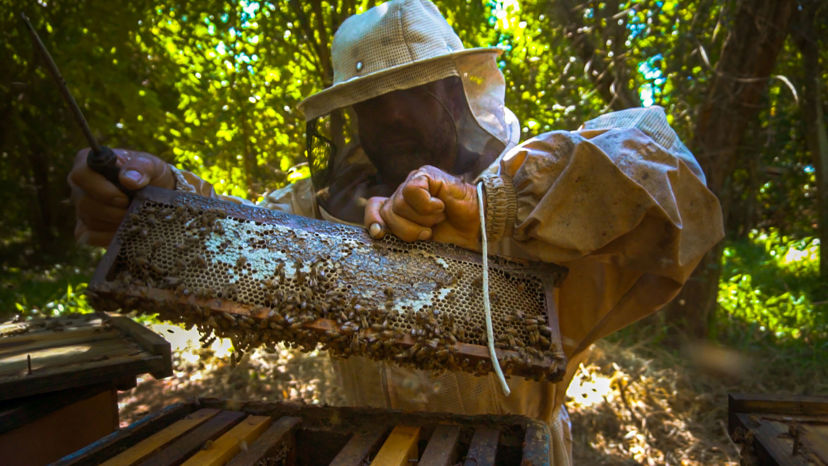
In 2016, COFCO International established a programme to reach out to local beekeepers to discuss the impact of its activities on the bee colonies, and figure out ways to protect bees near its sugar plantations.
“We wanted to show that it’s possible to combine healthy biodiversity with agricultural activity,” says Matheus Tripodi, Agricultural Supervisor from COFCO International. “Together with the local beekeepers we came up with solutions to maintain thriving bee colonies nearby our farms.”
The discussions led to the launch of Project Pollinate, an initiative to protect and nurture the apiaries close to COFCO International's sugarcane fields. Four years later, COFCO International is supporting 58 apiaries, more than 5,000 hives, in 13 municipalities across the Brazilian state of São Paulo. And the project – locally known as Polinizar – is winning international recognition.
COFCO International’s technical teams worked with beekeepers to locate hives and the foraging zones of the bees, then fed the information into high precision digital maps. These maps are connected to satellite location technology, so that whenever COFCO International’s sprayer drones or planes go near the hives, the sprayer turns off automatically.
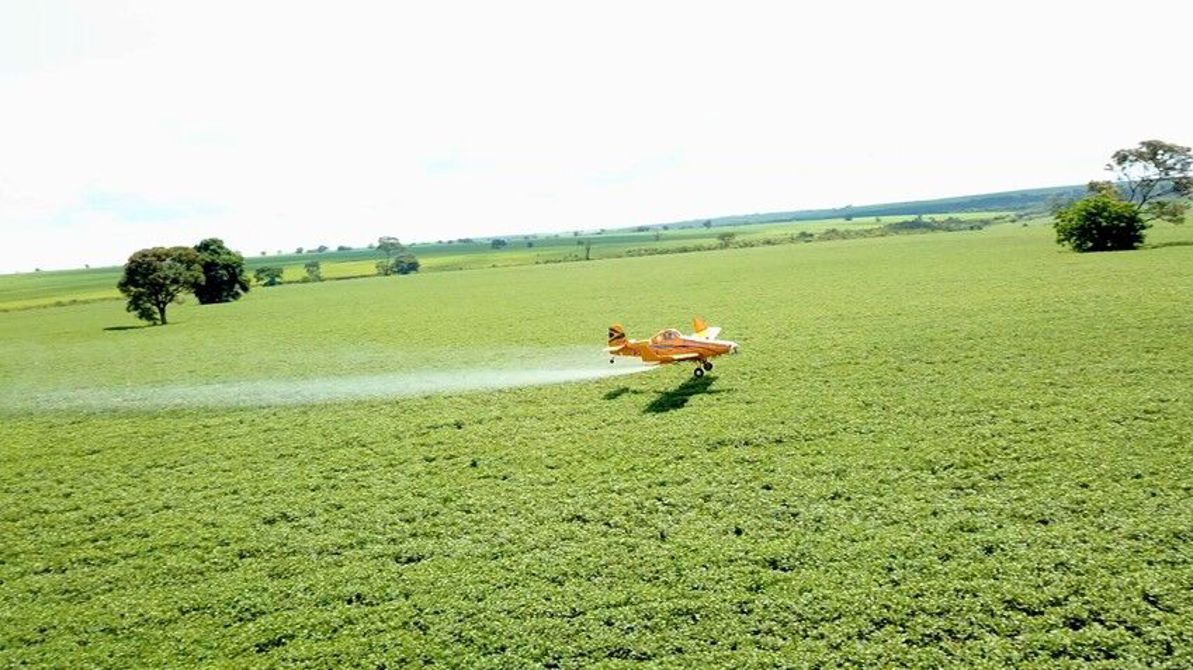
In these no-spray zones, biological pest control is used instead. To destroy the sugarcane borer, for example, COFCO International releases wasps from a drone to hunt, kill, and eat the caterpillars. Deadly for the sugarcane borers, this method is kinder on the environment. Since COFCO International began Project Pollinate, honey producers have increased their production by as much as 50 percent.
“After receiving support from COFCO International’s Pollinate Project, the mortality of our beehive practically zeroed,” says Mauricio Rodrigues, a beekeeper, who lives close to the company's sugar and ethanol plants in São Paulo.
Local communities
Besides protecting the bees and promoting the breeding of native bee species, COFCO International also trains beekeepers to increase the productivity of their hives, increasing their sources of income and quality of life. Every four months, the beekeepers take part in a tailored training session.
The project is resonating with younger generations too. In 2019, Project Pollinate reached out to children in public schools surrounding the company's sugar units. Through a partnership with Kombee, a children’s education specialist, it delivered learning sessions about bees to over 500 children in four municipalities.
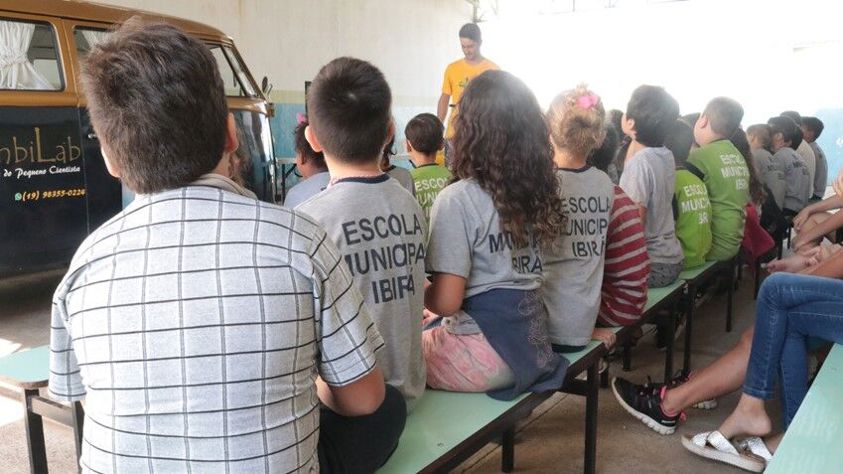
The children enjoyed interacting with stingless bees and tasting different types of honey as they learned about the vital importance of bees for food production and the delicate balance of the planet’s ecosystems
It also joined with the BeeCare project to build ‘hotels’ for solitary bees, of which many more are planned for the future.
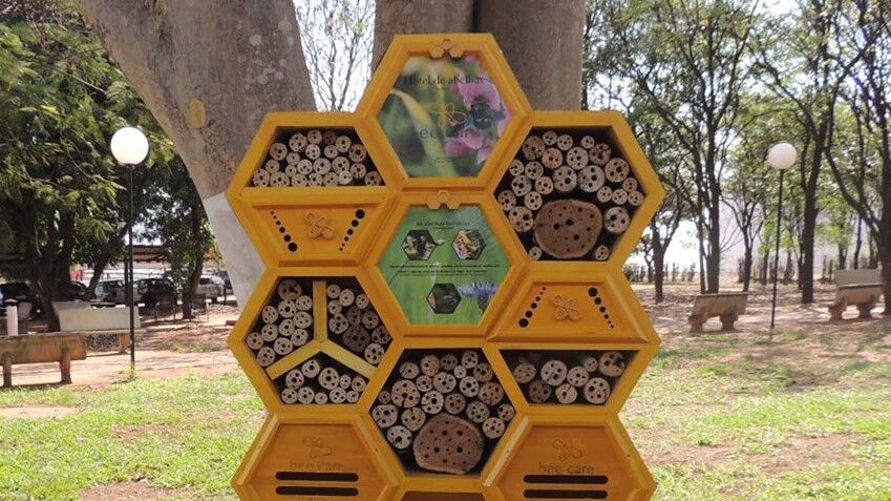
The Project is now rolled out to two further COFCO International sugarcane production units in Meridiano and Sebastianópolis. Brazil’s Sugarcane Industry Union (UNICA) has welcomed the project, with a view to replicating it beyond São Paulo state to other sugarcane producing regions. In 2018, Project Pollinate was mentioned at the Biodiversity Forum, an event on biodiversity and business that is promoted by the United Nations in Egypt.
“Biodiversity is the foundation of our agricultural and food system,” says Julia Moretti, Sustainability Manager at COFCO International. “That’s why as a company, we want to search for solutions that secure global food security and improve farmers’ livelihoods while respecting the natural world. Project Pollinate is an example of this vision coming together.”
